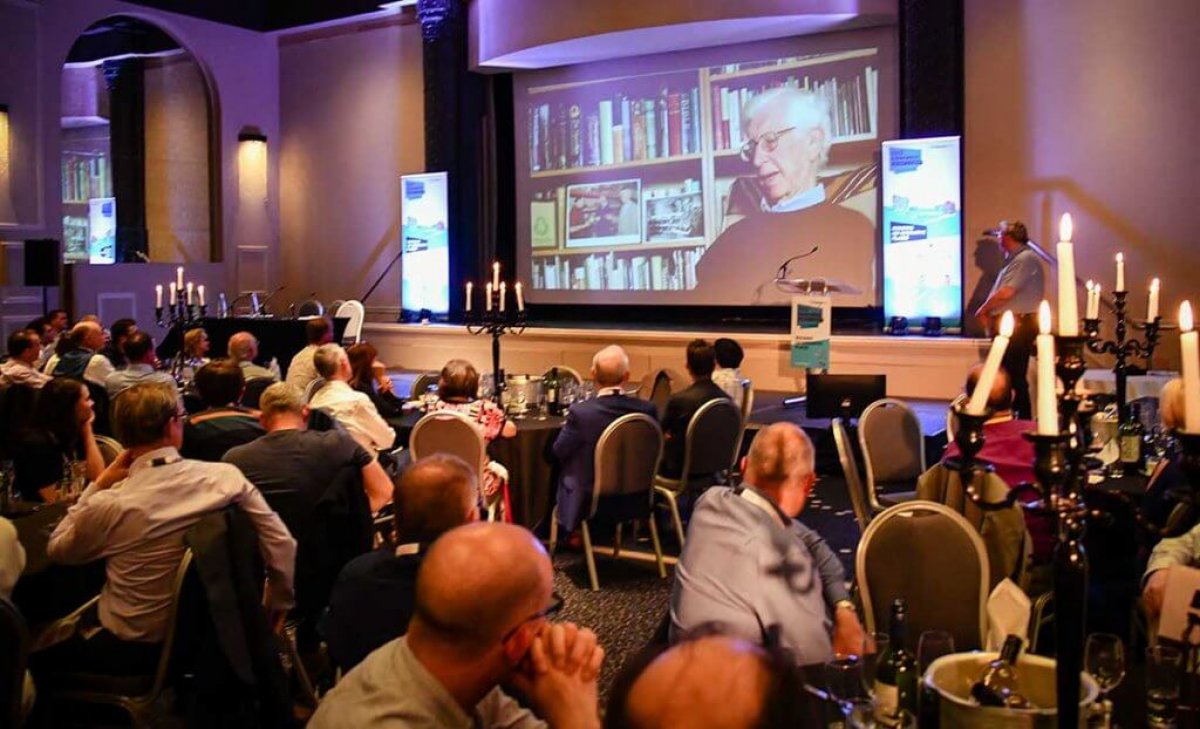Tim reflects on Co-op Congress 2019
Congress attendees had a rude awakening on Saturday morning with a false fire alarm before its start; not ideal for delicate heads following a night of high excitement generated by the 2019 Co-op of the Year Awards!
More than 30,000 votes had been cast in the public vote prior to the event, which seems huge and Congress applauded the very worthy winners of The Co-operative Group, Bristol Wood Recycling, The School’s Energy Co-operative and South Tyneside Council with Lorraine Power from Leeds Bread Co-op crowned Co-operator of the Year.
We were delighted to hear that Roger Sawtell was announced as the winner of the Lifetime Achievement Award. Over the years, Roger was instrumental in founding many co-ops including ICOM which merged into Co-operatives UK and ICOF, which is us, now trading as Co-operative and Community Finance. We are honoured to be associated with Roger.
Despite the false start, Saturday kicked off on time with a welcome from Ed Mayo and a session on ‘Leading the way for a fairer economy’. This included an interesting presentation by author Oliver Bullough who said there’s “no co-ops in Moneyland”; in reference to his book ‘Moneyland: Why Thieves and Crooks Now Rule the World and How to Take It Back’. This book uncovers corruption, money laundering and a broken system, that co-ops have the opportunity to reverse.
Claire McCarthy, General Secretary of The Co-operative Party went on to say that the co-op sector still feels like “the best kept secret in Britain” and that there is a real a need to “talk up” the positive impact co-ops make and the need to be more ambitious and optimistic in growing the sector. Paul Gerrard of the Co-op group highlighted that more could be done through public procurement processes to support more Co-ops in delivering local authority contracts.
After the morning break, Congress split off to wide ranging sessions covering Impact, Platform Co-ops, Co-operation among Co-operatives, and advice surgeries on Leadership, Governance, and Policy delivered by Co-operatives UK staff. The ‘Communities in Charge’ session in the main hall included, on the panel, James Alcock, one of our Trustees, who alongside Tony Armstrong presented their joint campaign between Co-operatives UK, Locality and the Plunkett Foundation. These, collectively, had presented to government their ‘Communities in Charge‘ paper setting out how they feel the promised post Brexit ‘Shared Prosperity Funding’ should be distributed; to ensure communities have the chance to take control of funding and economic development locally and put communities first. Tony Armstrong CEO of Locality said “The Shared Prosperity Fund can be transformational if allocated to the right places and in the right way”.
In the ‘The future of responsible finance’ breakout session, Fintech, Credit Unions and Regional Community Savings banks were discussed. Maarten Rooney from Singlify talked about the importance of using a combination of both High tech and High touch to build local connections. Large corporations typically rely on only High Tech solutions to drive business and growth but co-ops, with the Unique Selling Point of their intrinsic networks and members, have a true commercial differentiator – their strong ‘high touch’ connections, which when used alongside high tech, can generate very positive results.
This need for localness was echoed by James Moore of Community Savings Bank Association, who promote the establishment of new regional mutually owned Banks. They hope to see the first Community Bank open its doors on a High Street in the South West within the next two years, having nearly completed their 600 page banking license application and raising £600k of investment.
After lunch, James Wright of Cooperatives UK and Keely Lead of the Employee Ownership Association talked about how they are working together to drive worker ownership & control start-ups and have an ambition for 1 million new worker/employee owners in UK regions with a Project launch coming soon. There was a call-out for the government to do more and back a more inclusive economy and panelist Polly Robbins from Outlandish said other co-ops including the Co-operative Group needed to procure more services from other Co-ops and help more to raise the awareness of the sector.
The final headline session saw Stir to Actions‘ Jonny Gordon-Farleigh, Laura Noon from Central England Co-op Society and Vivian Woodell, a director of the Co-op Loan Fund, representing Student Homes, discuss the importance of educating the next generation of co-operators. They said Co-op education needs to make a strategic intervention into areas that affect young people such as the Gig Economy and both finance and support was needed for creating new Platform Co-ops and to drive forward plans for new Co-operative Student Accommodation.
Overall Congress 2019 was a positive couple of days in Manchester in spite of the ongoing political uncertainties and broken economy, Co-operation and Principle 6 is still strong amongst the core. There are still challenges, however, as identified in the closing plenary with ‘How to Raise Awareness of Co-ops’ (among the rest of the population) high up on the list of issues; again!
Other issues raised included, how to be agile, how to create a critical mass of co-ops, how to resource Co-op development and how to create space and emerging markets for new Co-operators. But there is hope and there is some great work coming from Co-ops UK and others, including new initiatives like the ‘Communities in Charge’ campaign, a future collaboration project between Co-operatives UK and the Employee Ownership Association, and moves for Co-op Education to launch a University.
It’s these strategic projects, alongside existing priority addressing programmes such as UnFound supporting platform co-ops, and the Booster project supporting community share issues, that all help to galvanise and strengthen the co-operation of Workers. Members. Rebels. Citizens. Residents. Owners and Sharers as told in the new Co-ops UK film launching #CoopFortnight 2019.

